
Sir Alfred Joseph Hitchcock was an English film director. He is widely regarded as one of the most influential figures in the history of cinema. In a career spanning six decades, he directed over 50 feature films, many of which are still widely watched and studied today. Known as the "Master of Suspense", Hitchcock became as well known as any of his actors thanks to his many interviews, his cameo appearances in most of his films, and his hosting and producing the television anthology Alfred Hitchcock Presents (1955–65). His films garnered 46 Academy Award nominations, including six wins, although he never won the award for Best Director, despite five nominations.

Rear Window is a 1954 American mystery thriller film directed by Alfred Hitchcock and written by John Michael Hayes based on Cornell Woolrich's 1942 short story It Had to Be Murder. Originally released by Paramount Pictures, the film stars James Stewart, Grace Kelly, Wendell Corey, Thelma Ritter, and Raymond Burr. It was screened at the 1954 Venice Film Festival.
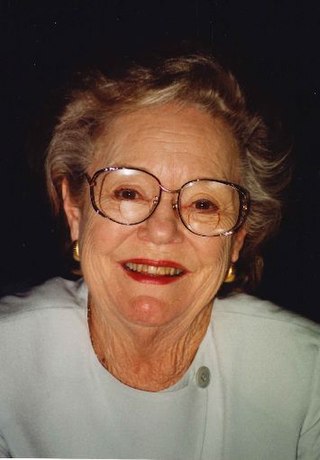
Patricia Alma Hitchcock O'Connell was an English-American actress and producer. She was the only child of English director Alfred Hitchcock and film editor Alma Reville, and had small roles in several of her father's films, with her most substantial appearance being in Strangers on a Train (1951).

Alfred Hitchcock Presents is an American television anthology series created, hosted and produced by Alfred Hitchcock, airing on CBS and NBC, alternately, between 1955 and 1965. It features dramas, thrillers, and mysteries. Between 1962 and 1965 it was renamed The Alfred Hitchcock Hour. Hitchcock himself directed only 18 episodes during its run.
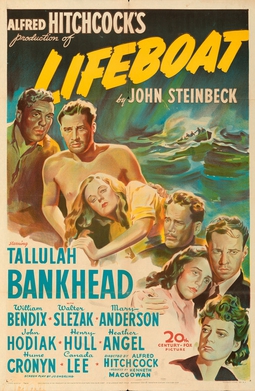
Lifeboat is a 1944 American survival film directed by Alfred Hitchcock from a story by John Steinbeck. It stars Tallulah Bankhead and William Bendix, alongside Walter Slezak, Mary Anderson, John Hodiak, Henry Hull, Heather Angel, Hume Cronyn and Canada Lee. The film is set entirely on a lifeboat launched from a passenger vessel torpedoed and sunk by a Nazi U-boat.

The Lodger: A Story of the London Fog is a 1927 British silent thriller film directed by Alfred Hitchcock and starring Marie Ault, Arthur Chesney, June Tripp, Malcolm Keen and Ivor Novello. Hitchcock's third feature film, it was released on 14 February 1927 in London and on 10 June 1928 in New York City. The film is based on the 1913 novel The Lodger by Marie Belloc Lowndes and the play Who Is He? co-written by Belloc Lowndes. Its plot concerns the hunt for a Jack the Ripper-like serial killer in London.

Jan Sterling was an American film, television and stage actress. At her most active in films during the 1950s, Sterling received a Golden Globe Award for Best Supporting Actress for her performance in The High and the Mighty (1954) as well as an Academy Award for Best Supporting Actress nomination. Her best performance is often considered to be opposite Kirk Douglas, as the opportunistic wife in Billy Wilder's 1951 Ace in the Hole. Although her career declined during the 1960s, she continued to play occasional television and theatre roles.
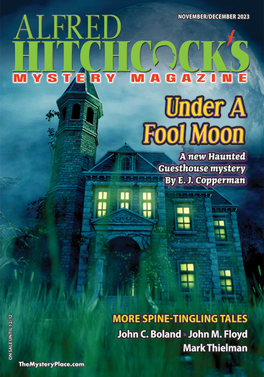
Alfred Hitchcock's Mystery Magazine (AHMM) is a bi-monthly digest size fiction magazine specializing in crime and detective fiction. AHMM is named for Alfred Hitchcock, the famed director of suspense films and television.

Joan Harrison was an English screenwriter and producer. She became the first female screenwriter to be nominated for the Best Original Screenplay Oscar when the category was introduced in 1940, and was the first screenwriter to receive two Academy Award nominations in the same year in separate categories, for co-writing the screenplay for the films Foreign Correspondent (1940) (original) and Rebecca (1940) (adapted), both directed by Alfred Hitchcock, with whom she had a long professional relationship.
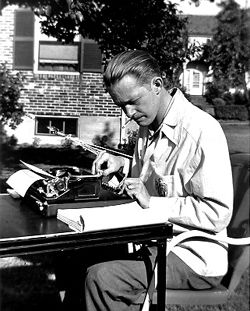
Robert Arthur Jr. was a writer and editor of crime fiction and speculative fiction known for his work with The Mysterious Traveler radio series and for writing The Three Investigators, a series of young adult novels.

The following is a partial list of unproduced Alfred Hitchcock projects, in roughly chronological order. During a career that spanned more than half a century, Alfred Hitchcock directed over fifty films, and worked on a number of others which never made it beyond the pre-production stage.
Stewart v. Abend, 495 U.S. 207 (1990), was a United States Supreme Court decision holding that a successor copyright owner has the exclusive right to permit the creation and exploitation of derivative works, regardless of potentially conflicting agreements by prior copyright holders.

Roger Phillip Graham was an American science fiction writer who was published most often using the name Rog Phillips, but also used other names. Of his other pseudonyms, only Craig Browning is notable in the genre. He is associated most with Amazing Stories and is known best for short fiction. He was nominated for the Hugo Award for Best Novelette in 1959.

Henry Slesar was an American author and playwright. He is famous for his use of irony and twist endings. After reading Slesar's "M Is for the Many" in Ellery Queen's Mystery Magazine, Alfred Hitchcock bought it for adaptation and they began many successful collaborations. Slesar wrote hundreds of scripts for television series and soap operas, leading TV Guide to call him "the writer with the largest audience in America."
Robert Westerby, was a writer of novels and screenwriter for films and television. An amateur boxer in his youth, he wrote many early magazine articles and stories centred around that sport. As a writer of screenplays, he was employed at Disney's Burbank studio from 1961 until his death in 1968.

Alfred Hitchcock and the Making of Psycho is a 1990 non-fiction book by Stephen Rebello. It details the creation of director Alfred Hitchcock's 1960 thriller Psycho. The 2012 American biographical drama film directed by Sacha Gervasi, based on this non-fiction book is titled Hitchcock. The film was released on November 23, 2012.
"Poison" is a short story written by Roald Dahl that was originally published in June 1950 in Collier's.
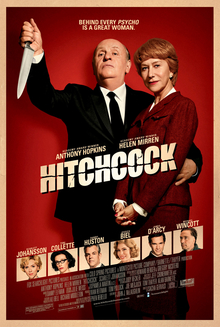
Hitchcock is a 2012 American biographical romantic drama film directed by Sacha Gervasi and based on Stephen Rebello's 1990 non-fiction book Alfred Hitchcock and the Making of Psycho. Hitchcock tells the story of the relationship between Alfred Hitchcock and his wife, Alma Reville, during the filming of Psycho in 1959. Hitchcock premiered at the AFI Fest on November 1, 2012 and was released in the United States on November 23 by Fox Searchlight Pictures. It grossed $27 million against a $15 million budget.
George Whitfield Cook III was an American writer of screenplays, stage plays, short stories and novels, best known for his contributions to two Alfred Hitchcock films, Stage Fright and Strangers on a Train. He also wrote scripts for several TV series, including Suspense, Climax! and Playhouse 90.

Cuthbert Quinlan Dale Collins was an Australian journalist and author of popular fiction. He is notable for a series of sea romances written in the 1920s and 1930s, some of which were adapted for motion pictures, including Rich and Strange, directed by Alfred Hitchcock, which closely followed his novel of the same name.















